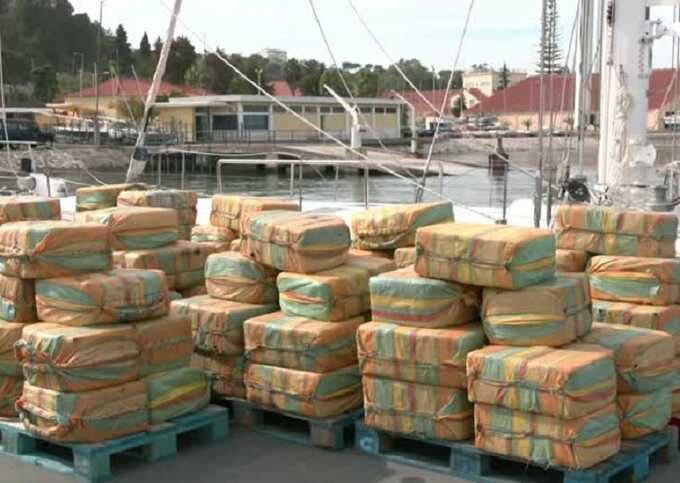Portugal emerges as central hub for cocaine trafficking to Europe
Record-breaking cocaine seizures in Portugal in 2024 have cemented the country’s status as a crucial axis in drug trafficking routes into Europe.
This is reported by InSight Crime.
In 2024, Portugal set a historic high of 22.5 tons of cocaine seized, more than double the 9.5 tons confiscated in 2019 and exceeding the 16.3 tons seized in 2022, according to Artur Vaz, director of Portugal’s National Unit for Fighting Drug Trafficking, as reported by Diário de Notícias.
The scale of the seizures suggest that Portugal is not only a transit point but also a potential storage and distribution center for cocaine destined for other European markets. Authorities indicate that Latin American criminal groups, such as Brazil’s First Capital Command (Primeiro Comando da Capital – PCC), have adopted new maritime routes, shifting toward the ports in Portugal and Spain. This change comes in response to heightened surveillance and improved law enforcement cooperation in traditional entry hubs like Rotterdam and Antwerp in the Netherlands and Belgium.
“There will always be a displacement effect. If a port implements effective security measures, we will see shipments being redirected elsewhere, including within Europe,” Sjoerd Top, director of the Maritime Analysis and Operations Centre (Narcotics), told InSight Crime.
InSight Crime Analysis
The surge in cocaine seizures underscores Portugal’s strategic importance within international drug trafficking networks.
“The increase in seized quantities is mainly due to high production levels and the growing number of criminal groups active in European markets,” said Sylvie Isabelle Figueiredo, a PhD researcher on organized crime and terrorism at the Portuguese Institute of International Relations, in an interview with InSight Crime.
Portugal’s strategic location as a gateway to Europe from South America makes it a key point in transatlantic drug routes. Its large Brazilian community fosters connections with trafficking networks, while cultural and linguistic ties facilitate both legal and illicit exchanges. With major ports like Sines and Lisbon, the country offers prime entry points for shipments, while its position relative to Latin America and West Africa – both critical transit zones for drug smuggling – further strengthens its role. These factors collectively give drug trafficking organizations a logistical advantage, solidifying Portugal’s significance in global narcotics distribution.
Media reports indicate that the PCC, which plays a dominant role in Brazil’s drug trade and operates in Paraguay and Bolivia, has expanded international activities into Portugal. The shift appears to be a direct response to increased controls at other European entry points.
“The cultural and linguistic ties between Portugal and countries like Guinea-Bissau, Cape Verde, and Angola facilitate both law enforcement efforts and the activities of criminal groups,” said Top.
Despite concerns, Portuguese authorities caution that no conclusive evidence exists proving that the PCC has a dominant foothold in the country.
“We have some information indicating that certain individuals from this group may be involved in some drug shipments, but for now, we have no concrete evidence that the PCC has a significant presence or controls drug trafficking in Portugal,” said Vaz, the anti-narcotics director.
Nonetheless, Vaz acknowledged that the PCC has leveraged Portugal as a favorable base for complementary criminal activities, particularly money laundering, with notable investments in sectors like real estate and football.
“Money laundering is a critical issue for criminal organizations because they generate so much money that it becomes difficult to funnel it into the legal economy,” Vaz concluded.
Additionally, Europol intelligence obtained by InSight Crime indicates that criminal networks such as the Italian ‘Ndrangheta have collaborated with the PCC in cocaine distribution across Europe, engaging in drugs-for-weapons exchanges. This partnership enhances the Brazilian group’s capacity to expand its influence on the continent.
Read more similar news:
Comments:
comments powered by Disqus


































